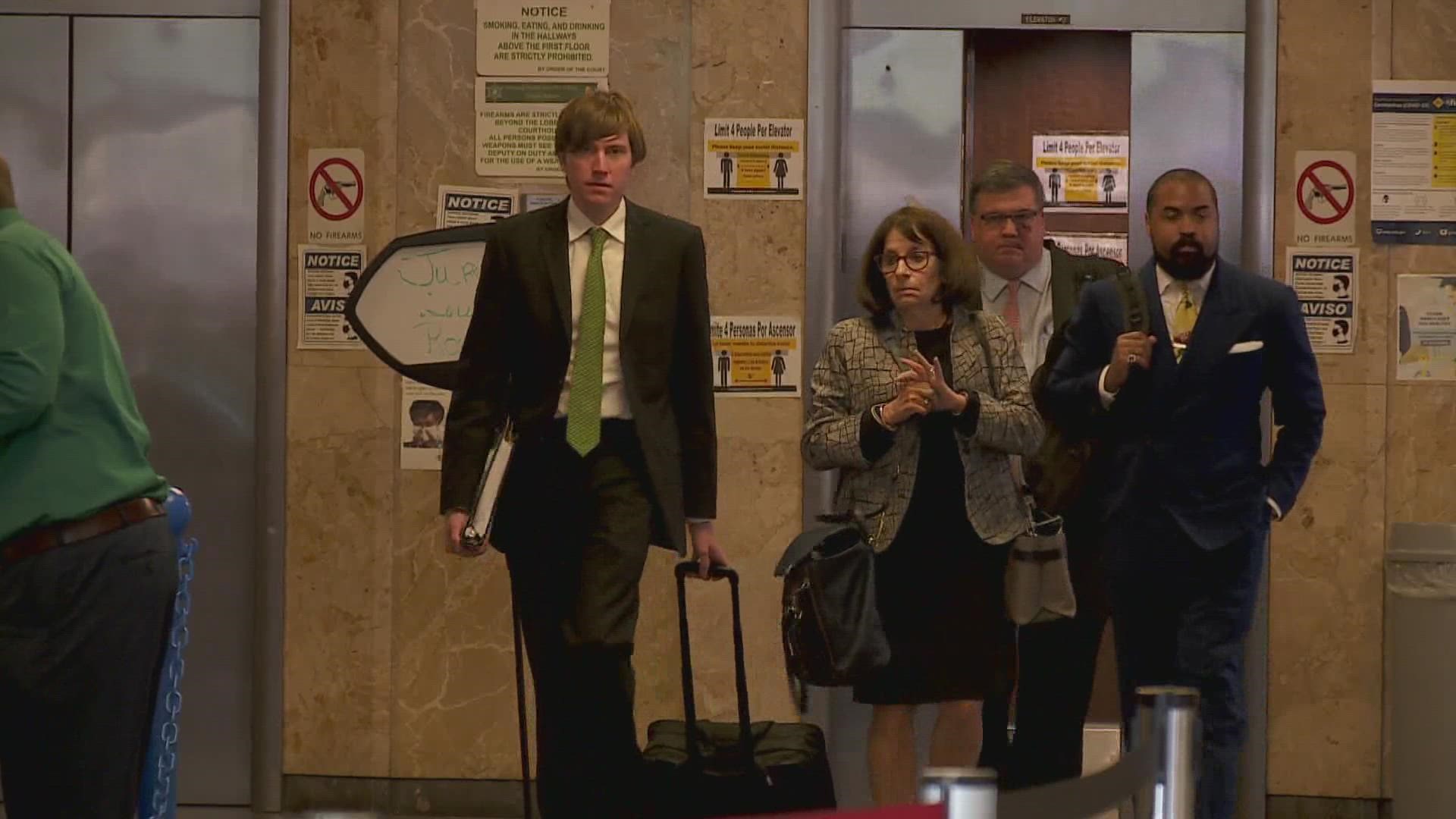NEW ORLEANS — In a major setback for Mayor LaToya Cantrell’s effort to privatize and share a 108-year-old city land trust with the donor’s heirs, a civil judge declared the Wisner Trust proceeds “public funds” Wednesday and called for a public accounting of all trust spending in front of the City Council.
Judge Kern Reese made the ruling from the bench after hearing from lawyers for the City Council on one side and attorneys for a Wisner Trust management board created in 2020, the Wisner family and the mayor on the other.
Reese granted the City Council a preliminary injunction blocking any further spending of Wisner funds without court approval, other than money oil giant BP paid to the Wisner Trust in a settlement for damage caused by the 2010 Gulf oil spill.
The case would still have to go to trial, but Reese signaled that he’s likely to agree with the City Council’s position that the Wisner property and all proceeds from it belong to the citizens of New Orleans, based on a 4th Circuit Court of Appeal ruling in 2014.
Cantrell tried to reconstitute the trust under private management in 2020, but Reese said it was “not properly modified against the ruling of the 4th Circuit in 2014.” He said the City Council appeared to be correct
"I think they made a prima facia case that they may be city funds,” Reese said. “So, the question now becomes, where do the funds go?”
Reese ordered the Wisner Trust to make a public accounting to the City Council of all revenues derived from the Wisner lands. Councilman Joe Giarrusso cheered the ruling.
“We need to know where all of the money is going, both towards the heirs and for all the people who've been receiving the money for this period of time,” he said. “All we've been asking for is sunshine. I'm glad the judge gave it to us today.”
Landowner Edward Wisner created the Wisner Trust or Wisner Donation in 1914 and died in 1915. He donated 52,000 acres of coastal land in Lafourche Parish and elsewhere to the City of New Orleans. He set up the mayor of the city as the trustee for 100 years, and the trust was supposed to dissolve in 2014.
The City Council argues 100% of the property, which includes a major oil and gas port at Port Fourchon and generates around $10 million a year in lease payments, should have automatically gone to the city at that point. Any money the land generated would go to the city’s general fund, to be reported publicly and budgeted with City Council oversight.
But Wisner’s heirs claim a 1929 compromise between the city and Wisner’s widow and daughters – the so-called Wisner Ladies – changed the trust’s terms and gave them a claim to 40% of the revenues during the trust and that same percentage ownership of the land once the trust expired.
When it expired in 2014, then-Mayor Mitch Landrieu did nothing to dissolve the trust and take control of the land.
Instead, he kept going with the longstanding tradition of handing out the city’s share of trust revenues to nonprofits and sharing the rest with the Wisner heirs, Tulane University, Charity Hospital – now LSU Health Sciences Center – and the Salvation Army.
The Wisner heirs, now a group of 50 people and entities, including attorneys and law firms, got 40% under the 1929 compromise. Tulane and LSU Health got 12% each and the Salvation Army got about 1%. Cantrell kept using the city’s share of about 35% of Wisner revenues to give grants to nonprofits, but she stopped reporting the spending publicly and stopped holding public hearings of an advisory committee that reviewed grant applications.
In 2020, Cantrell signed an agreement to re-establish the Wisner Trust as a private entity in perpetuity, giving the heirs what they wanted and letting the mayor continue handing out the city’s share to private nonprofits without City Council oversight. The City Council didn’t learn about the agreement until months later, attorney Judy Barrasso said.
Barrasso argued Wednesday that Cantrell violated the constitution by donating city property to private entities through the 2020 agreement.
Cantrell never explained why she agreed to reconstitute the dead trust two years ago, rather than claiming the city’s ownership of the full Wisner donation, which would have brought in millions of dollars more in lease revenues each year and could conceivably fetch the cash-strapped city hundreds of millions if the land is sold.
She was finally asked about that decision at a news conference Tuesday, and she seemed to suggest the city could have lost its right to the money if she hadn’t done it.
Cantrell said she was “making sure that the trust, that those all tied to the trust, where we could make sure that the city of New Orleans continues to benefit from that.”
And she said the City Council’s effort to have the city seize full control of the land and its proceeds would hurt the nonprofits she sends Wisner grants to each year.
“Organizations that depend on these resources are, again, in a position to not receive them in the future,” Cantrell said.

